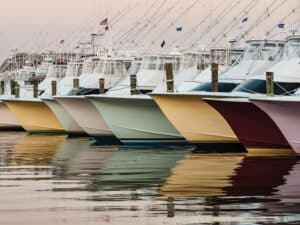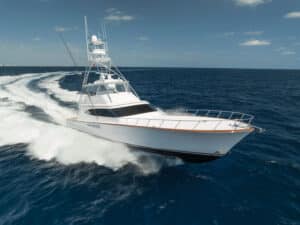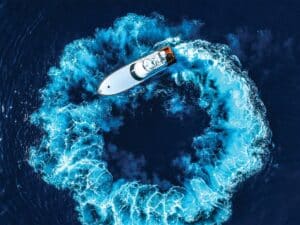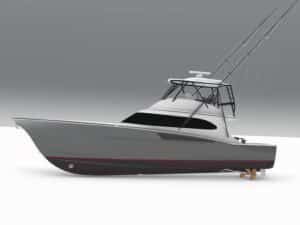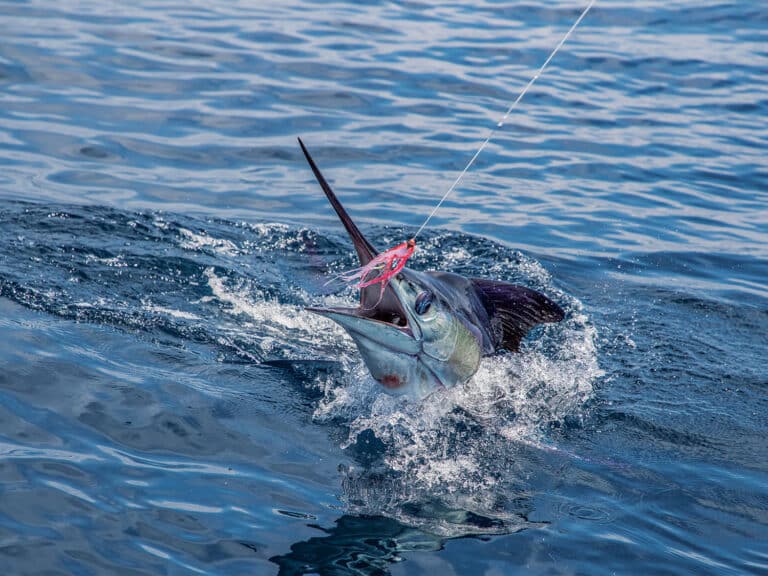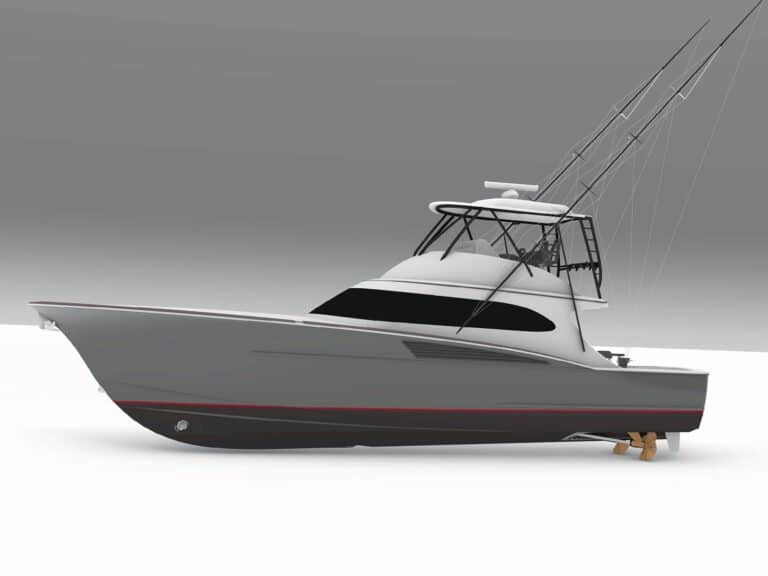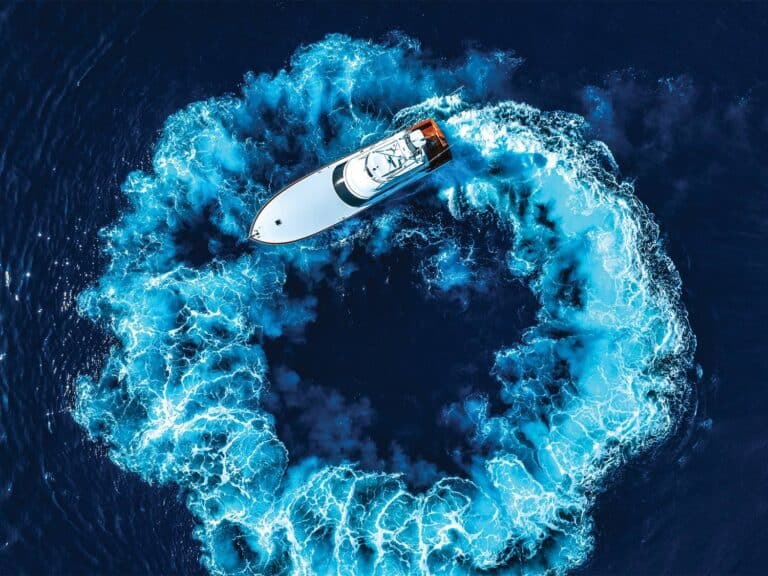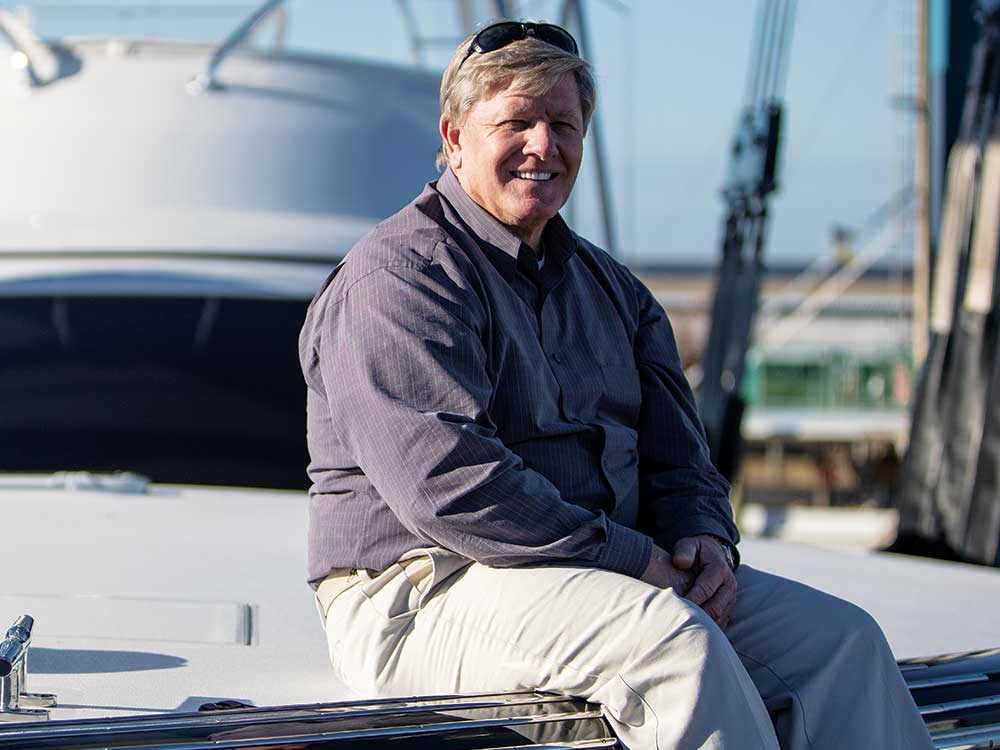
As one of the world’s most prolific custom boatbuilders, Paul Spencer understands the value of hard work, and the importance of family. A Spencer Yacht can be found in just about every marlin destination in the world, as well as on top of tournament leaderboards from Costa Rica to Cabo San Lucas. Today, his hair is flecked with sawdust as he checks on several new builds in progress, sea-trials a boat nearly ready for delivery, meets with engine manufacturers, and welcomes new customers who are hoping to secure a coveted production slot. It’s just a typical day in the life of this Wanchese, North Carolina-based charter captain turned builder. And he wouldn’t have it any other way.
Q: What misconceptions exist about boatbuilding?
A: It’s not magic, there’s a lot of work involved in making a really wonderful boat. For me personally, the boat has to look good and perform really well. I learned a long time ago that there are some simple principles involved and if you don’t stray too far from those, you can produce a pretty good product; one that your customer will be proud of and love. And a happy customer is really where the magic happens.
Q: Where did you get your love for fishing and boats?
A: My grandfather was a commercial fisherman and I grew up around the water. Our neighbor at the time was rebuilding a boat and when it was complete, I begged him to be a mate. When I saw the tunas, dolphin and marlin in the Gulf Stream, I knew I had found my passion. It was later in life that my father-in-law [boatbuilder Sheldon Midgett] encouraged me to start building. He taught me the fundamentals that helped me in what eventually became my career.
Q: Any hobbies?
A: Fishing really is my passion. I’ve been very blessed to be invited on some very nice boats and I get to fish in some amazing places. I hunt a little bit, but fishing is my real hobby.
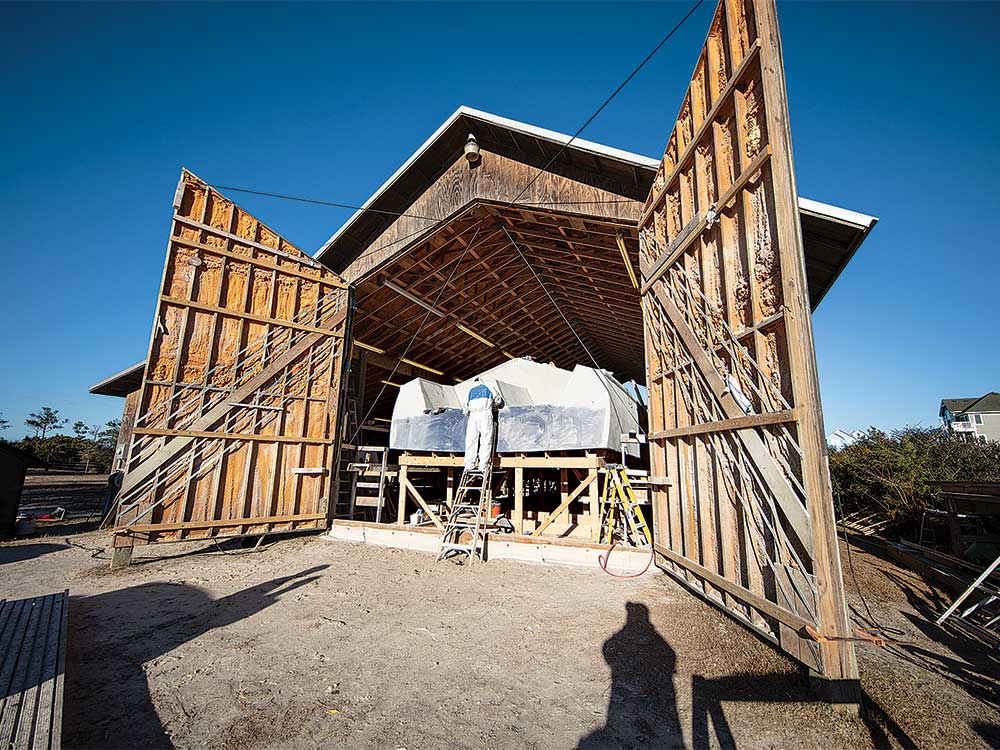
Q: What advice would you give yourself 20 years ago?
A: To stick with it and keep going. Twenty years ago, I was naïve enough to think I could build a decent boat. I thought, ‘If someone else can build it, why can’t I?’ I remember my sister-in-law saying, ‘You can’t build a boat,’ — I told her I could, and I did. Many years later, she apologized, and we have a good laugh about it now.
Q: What have you sacrificed along the way?
A: In the beginning, everything. My brothers are lawyers and doctors and have done very well for themselves. Having a wife and kids, along with the dedication to start and build a business from scratch, was not always easy at times but I kept going. When I look back today, this little company has taken me all over the world to places I had only imagined. I’m happy to say I do not have any regrets.
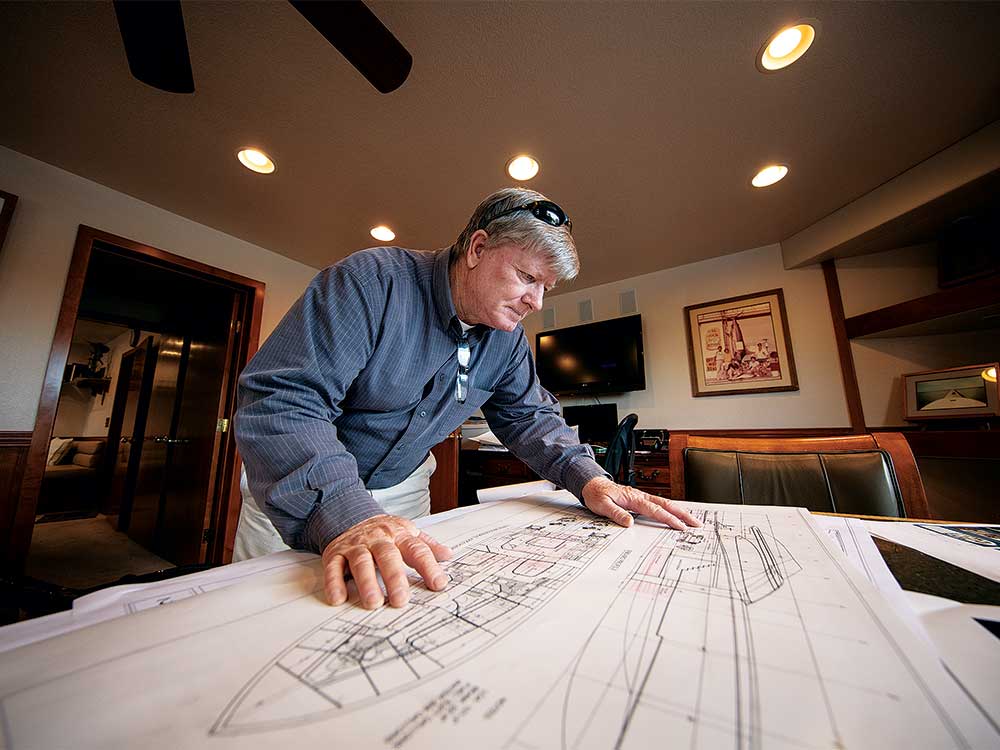
Q: Are there any limitations in the boats you build?
A: Not really. If a customer wants something, we’ll find a way to make it happen. Sometimes we get requests that I never thought of and once we pull it off, we decide to apply it to other boats. So, in some ways, those situations help us grow.
Q: Why do you do it?
A: Because I love it. I love everything about boatbuilding and honestly, I love the boats we build. The hardest part for me is seeing the boat leave. There is a very big part of us in these boats and we take great pride in our builds. I always look forward to seeing them again someday, somewhere in the world.
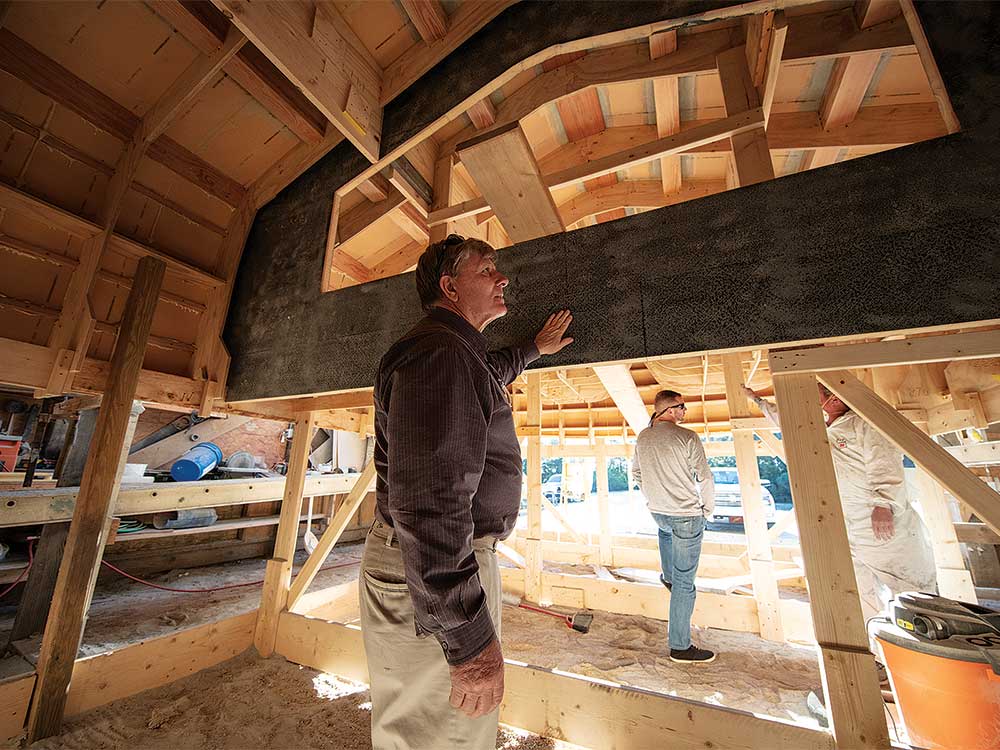
Q: You just completed Hull No. 100 — any other favorites?
A: My second hull, Anticipation, was a very special boat to me. I loved the owner, I loved the boat, and it really took me to some amazing places. I won the White Marlin Open and the Pirate’s Cove Billfish Tournament in a boat that we built. It’s hard to explain the feeling of building that boat from a pile of wood then having those great experiences. Not a lot of people get to do that and for me, it’s very special.
Read the Review of Spencer Yacht’s Hull No. 100, Centurion
Q: How does your time as a charter captain affect you as a builder?
A: When I approach building a boat, it’s always with fishing in mind. The way it performs, spins, turns, handles — it must do all those things very well. Our tournament record is very strong, and I’d like to think my lifetime on the water has contributed to that in some way.
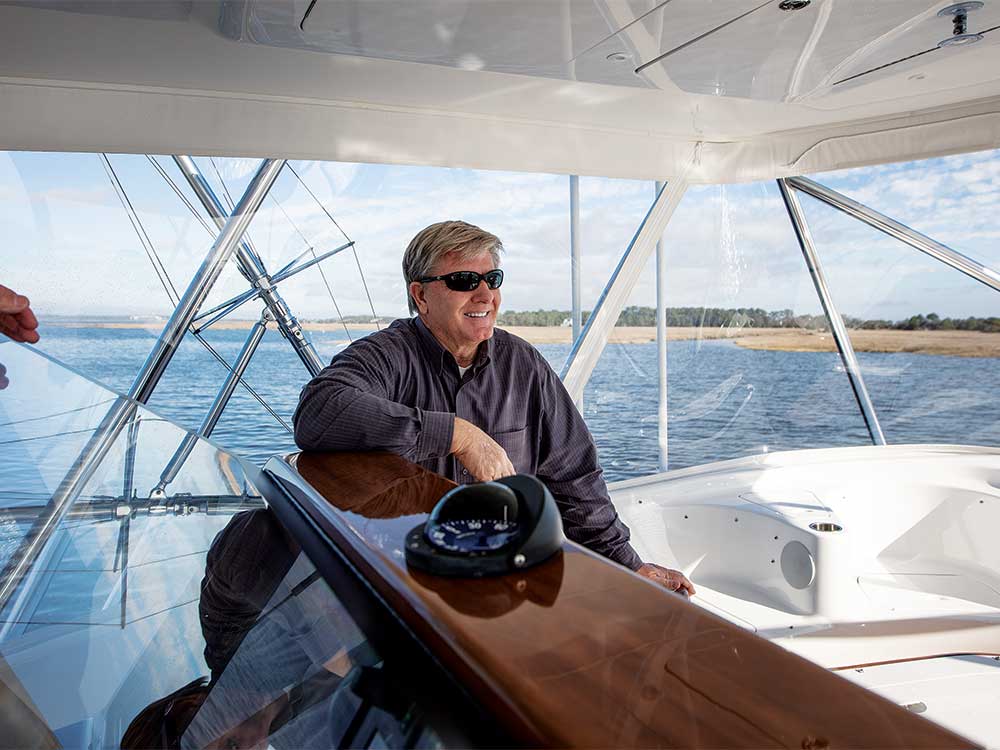
Q: Do you have a favorite fishing memory?
A: I’m lucky enough to have several. It’s very rare to catch a grander, and I’ve been lucky enough to catch two, one with each son on different trips. Another favorite was when my son Daniel was 12 years old, he caught a grand slam with two extra blues. But it isn’t the accomplishments I treasure, it’s the time with my family that means the world to me.
Q: Do you remember your first blue marlin?
A: Not really, because I was around so many with my family and as a mate. I do remember my first 425-pounder and thinking that it was as big as a whale. I also remember working with Omie Tillet when we caught 27 blue marlin one summer, which was a lot for Oregon Inlet. It was very magical.
Q: What does the future hold for you personally?
A: There are several things I hope to see and do someday, like the incredible number of striped marlin in Mag Bay — I’d really like to experience that. Today, we have boats that can reach much farther places hundreds of miles offshore for days at a time. I know there is some amazing fishing in the world that is still yet to be discovered.
Q: Is jet propulsion the next big advancement?
A: We are starting to experiment more with water-jet technology, and we see it playing a big role in sport fishing. There are too many benefits to ignore: shallow draft, increased speed and maneuverability, clean trolling water. If it’s not the answer, jets will play a big part as a stepping-stone to the next big thing.
Q: Will we see a sport-fishing boat that cruises at 50 knots any time soon?
A: You won’t be waiting long; in fact, it’s just around the corner for us. Thanks to some new composites and laminates combined with post-curing the boats, we’re taking small steps that make our hulls perform better. Our last jet-propulsion boat hit 50 knots with small six-cylinder engines. The future is going to be very interesting.
